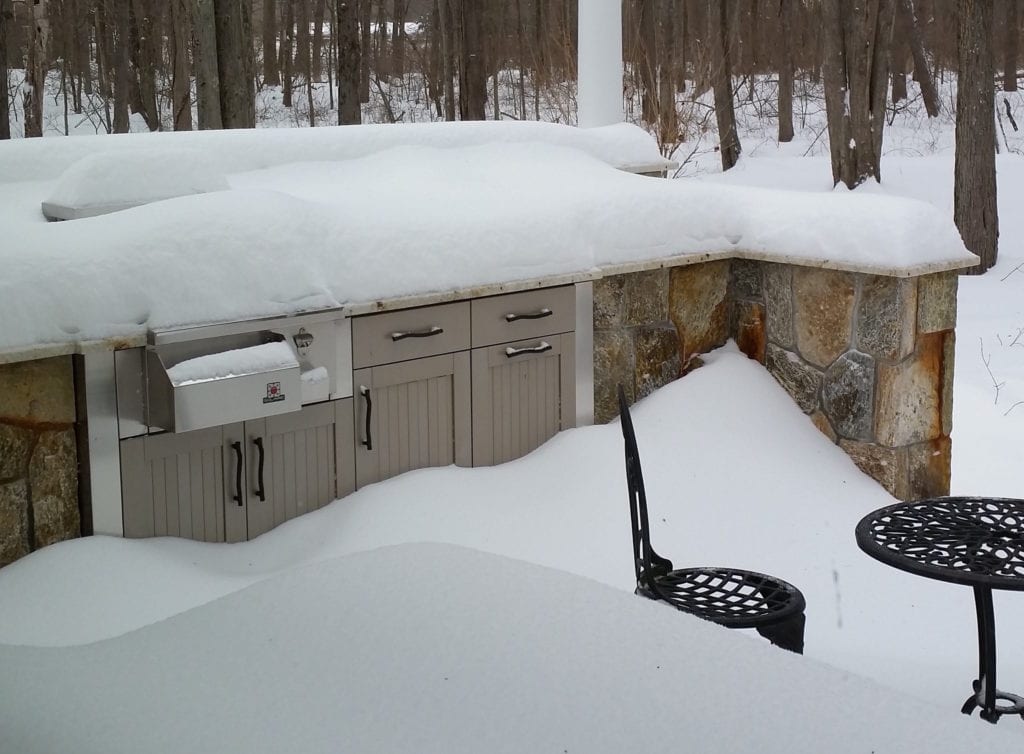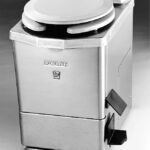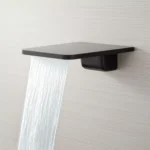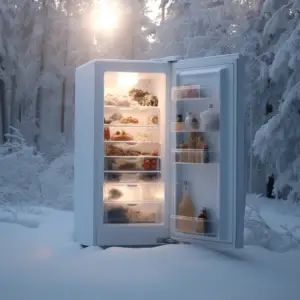
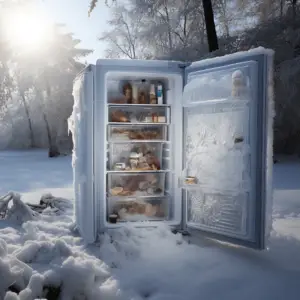 You might be asking yourself, “Can I keep a freezer outside?” Well, the answer is yes, but you better do it right!
You might be asking yourself, “Can I keep a freezer outside?” Well, the answer is yes, but you better do it right!
Keeping your freezer outside will not only give you extra space, but it can also save you money. You can keep a freezer outside in the winter, but there are some things you need to be aware of.
Winter can be very harsh on your home appliances, and appliances are not designed to operate in freezing temperatures. If you live in an area where the temperature drops below freezing for more than a few days at a time, it is best to store your appliance in a garage or shed. If you do not have access to either of these areas, then you may want to consider purchasing an electric blanket or pad for your appliance.
Before storing your freezer outside, make sure it is safe to do so. Freezer manufacturers provide safety instructions with every unit sold. These instructions include information on how far away from combustible materials you should place your freezer, how many gallons of fuel per hour it uses and how much space it takes up when fully loaded with food stored at 0 degrees Fahrenheit (-18 degrees Celsius).
Follow these guidelines closely because they are designed to ensure that your food is kept safe from fire or explosion, as well as protecting your home from damage caused by frostbite or other environmental hazards associated with outdoor storage of freezers.
If you have an outdoor freezer, you might wonder what to do with it during the winter. Can you leave it out there, or is it better to bring it in?
Freezers are designed to be used in all weather conditions. As long as they are well insulated and kept in a shaded area, they can stand up to freezing temperatures and still keep food at safe temperatures.
The question isn’t whether or not your freezer will work in the winter — it will — but whether or not it’s safe for the environment and for your food.
Table of Contents
Freezer Burn
When your food comes into contact with air, moisture from the air can cause dehydration and lead to freezer burn. This happens when ice crystals form on the surface of foods such as meat, poultry, and fish. Freezer burn is caused by two things: temperature fluctuations and exposure time. When the temperature changes too quickly, ice crystals form on the surface of your food, and this causes dehydration. The higher the temperature fluctuation, the faster dehydration happens. And if your food stays in contact with air for too long (like when you don’t store it properly), then dehydration occurs too quickly.
Freezer Safety Tips
Keeping your freezer outside in the winter can be a great way to save money on electricity, but it does have some risks.
Here are some tips for keeping your freezer safe and cold during the winter months:
Keep it Out of Direct Sunlight
The sun makes metal hot enough to melt plastic and damage the insulation inside. You’ll want to keep it away from windows as well since they can reflect heat back at the appliance. If you have no choice but to leave it in direct sunlight during the summer months, try painting the exterior with white paint, so it doesn’t absorb so much heat.
Freeze only what you’ll use within a few months — if you’re planning on storing frozen food for longer than three months, make sure it’s wrapped tightly and sealed tightly to prevent air from getting inside the package; this will help keep bacteria out; also make sure all packages are labeled so that they don’t get mixed up with other items or accidentally eaten by mistake!
Check the Temperature Outside Your Freezer
The easiest way to make sure that your freezer doesn’t get too warm is to check its temperature regularly. If you leave a thermometer inside the freezer, you’ll know if it’s getting too warm. If it is, then you need to take action.
Make sure that there is no snow accumulation on top of your unit as this could cause damage by adding weight onto it and possibly crushing it if enough weight builds up over time; also, make sure that there are no branches or other debris falling onto it which could cause damage as well.
Cover Your Freezer with a Blanket or Cover
If your freezer is sitting outside and getting too warm. Then covering it with a blanket or tarp can help keep it cool. This is especially important. I there has been snow or rain recently because those elements can cause condensation on the exterior of your freezer. Which will lead to dampness inside the unit — which is not good for storing food!
Place Your Freezer on Concrete or Ground That’s Not Gravel or Dirt
Placing your freezer on concrete or dirt that’s not gravel or dirt. Will help prevent moisture from seeping into the unit from below. This also helps prevent rodents from entering through holes in your foundation!
Ensure that the door of your appliance is closed tightly so that no moisture can get into it, causing rusting and damage to its internal components; this includes any vents as well as any openings on the front panel of the unit itself (such as handles).
What Temperature Is Too Cold For A Freezer?
Keep Freezer Outside Winter Freezers often come with temperature settings, but they aren’t always accurate. If you live in an area where the temperature is regularly above or below freezing. It’s best to check the temperature with an oven thermometer or digital meat thermometer. The ideal temperature for freezing most food is 0°F (-18°C) or lower. However, some foods can be safely frozen at slightly higher temperatures.
If you live in an area where winter temperatures are not too extreme. You can keep your freezer outside. However, because of the risk of power outages and other weather-related problems. It’s best to keep your chest freezer inside your house or garage.
